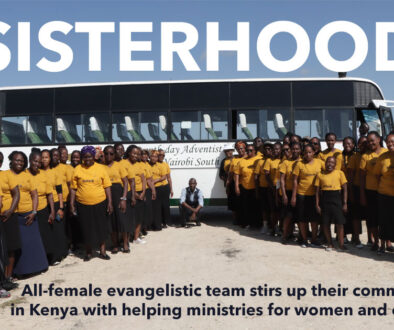What Will a New Supreme Court Justice in the United States Mean for Adventists?
13 July 2018 | Judge Brett Kavanaugh, a federal appeals court judge, was nominated by United States President Donald Trump this week to fill Justice Anthony Kennedy’s seat on the Supreme Court. Kavanaugh, age 53, was a staff member in the White House for President George W. Bush and a onetime investigator of President Bill Clinton. He is generally seen as assuring right-wing control of the top American constitutional court for decades to come.
With Kavanaugh there will be six members of the Catholic Church on the court, reported the Religion News Service (RNS). The other three justices are of the Jewish faith. There will be no Protestants on the court.
Kavanaugh has been the author of many decisions on a variety of topics including religious freedom. If he is confirmed by the Senate and joins the court, what will it mean for issues that are important to Adventists such as religious liberty, ethnic minorities, immigration and health care institutions?
“We are still reviewing his writings and judicial history,” Michael Peabody, an Adventist who practices law in Southern California and publishes ReligiousLiberty.TV, told Adventist Today. “So far Judge Kavanaugh seems to be an independent jurist on issues involving the free exercise of religion. The main issues to watch at this point, particularly in light of the recent decision in Trump v Hawaii, are his take on the extent of Executive Branch power and the strength of the Establishment Clause.” The Establishment Clause is the part of the First Amendment that prohibits the American government from “establishing” or officially recognizing any specific religion.
“It is difficult to predict how Supreme Court nominees will perform on the bench,” Jason Hines, an Adventist attorney and faculty member at the Adventist University of Health Sciences in Orlando told Adventist Today. “Retired Justice Souter and retiring Justice Kennedy are two good examples of how unpredictable justices can be. However, when I look at Judge Kavanaugh’s record I see trouble on the horizon regarding both the separation of church and state and minority rights.”
“With respect to religious liberty,” Hines continued, “Judge Kavanaugh has an ample record of siding with the powerful over the less so. He has written a dissenting opinion that argued for the right of employers to use their religious beliefs to control the healthcare options of employees, even if it resulted in discrimination against other protected classes. (Priests for Life v U.S. Dept of Health and Human Services) Kavanaugh also wrote friend of court briefs that promoted Christian prayer in schools and the use of government funds to support religious activities. Those of us who believe in a high wall of separation between church and state would not be pleased with Judge Kavanaugh’s record.”
Hines said, “Judge Kavanaugh’s record on voting rights is problematic as well. Kavanugh wrote the opinion that upheld a South Carolina voter ID law in 2012, which would disproportionately disenfranchise Black Americans. Kavanaugh ignored the fact that there was no record of voter fraud in the state, and that the legislative supporters of the bill privately used racially charged language in their conversations about the bill. It can be reasonably assumed that Kavanaugh might support the further dismantling of the Voting Rights Act as well.”
“All that being said,” Hines concluded, “this is to be expected from any conservative justice. Almost by definition, a conservative judge will have a retrogressive view of the Constitution. As such the legal rights of religious minorities, people of color, the LGBT community and other marginalized groups that stem from a more expansive reading of the Constitution will by nature be threatened by those who read the Constitution as a more static document.”
Adventist Today will publish additional, in-depth commentary with a variety of perspectives on this developing story. Throughout the history of the Adventist movement issues related to religious liberty and human rights in the United States have had a special place in the thinking of Adventist believers.




